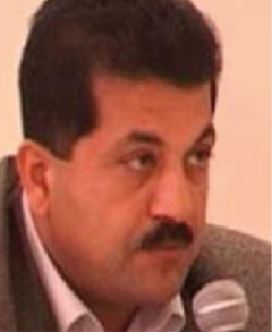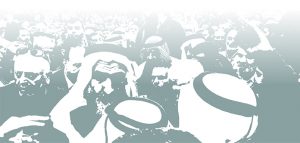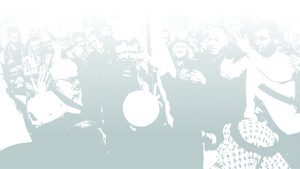It is not uncommon to see reports on sulha pacts in Palestinian newspapers. Such pacts result from efforts to informally resolve disputes of all sorts within Palestinian society, a traditional stream of conflict resolution efforts that involve a multitude of players in various forms. Sulha is based on mediation and can be applied to any dispute, at any level, including within a family or extended family, and aims to swiftly reach an amicable solution. Sulha is normally mediated or practiced by any figure that is respected in the community, and this mediator − rajul al-sulh or rajul al-islah (literally: the man who solves) − is at liberty to use law, tradition, or the dictates of fairness and justice as tools for reaching a resolution. This paper focuses on the role of the family in conflict resolution and thus excludes the role of other players, such as the security forces, governors, al-shabab (Intifada activists), and al-quwwa al-wataniyya (national forces), particularly the tandhim (local leadership).
Informal justice mechanisms have been documented in our region since the Ottoman Empire. The Ottoman Tanzimat Reforms of the mid-nineteenth century strengthened the civil courts in the empire, including in Palestine.*1 As the Ottoman Empire weakened, traditional mechanisms were strengthened − a situation that the British inherited.
The early British Mandate witnessed an increased focus on and incorporation of the tribal justice system into the legal system of Mandate Palestine. Entailing regulation, this forms the first record of a formal recognition of the informal justice system in terms of laws applicable to Palestine. Ironically, a Western colonial power with an established legal culture and judicial system came to the rescue of a hitherto marginalized informal tribal-justice system and gave it a mandate and renewed life.
The parties involved in administering informal conflict resolution in occupied Palestine, both before the establishment of the Palestinian National Authority in 1994, and after, call the years since 1967 the “Golden Times.”
However, it is necessary to note that whereas tribal justice prevailed among Bedouin communities, both madani (urban) and fallaheen (rural) Palestinians, as well as Palestinians in northern parts of Palestine in general, were less familiar with sulha*2 mechanisms or tribal justice practices. For most disputes, people did not resort to these even after the British Mandate had lifted the status of tribal justice to an acknowledged form of justice.ii Sulha dispute resolution practices, being least structured, were used in villages and cities mostly in family disputes in which family elders assumed quasi-judicial roles.
Reports indicate that during the Jordanian rule of the West Bank and the Egyptian administration of Gaza (1948-1967) effective court systems were in place, and dispute resolution was nearly always administered by state institutions. However, sources familiar with the system reported to the Institute of Law at Birzeit University that in cases when governmental institutions considered it appropriate, decrees passed by the informal, including tribal, justice system were respected.
Following the Israeli occupation in 1967, and increasingly since the first Intifada that started in late 1987, reports indicate an increased resort to informal mechanisms to solve disputes not necessarily related to familial matters. As security and police forces were representatives of the occupation authority, the national leadership and the leaders of the Intifada discouraged − at times even forbade – the resort to Israeli-operated mechanisms for dispute resolution. In the years following 2002, when the Israeli occupation authorities brought Palestinian governmental institutions, especially the security forces and the justice system, to near collapse, Palestinian society had to cope with increased levels of internal violence and violent disputes. In response, family structures, tribal and others, were increasingly deployed, as recorded in the USAID-funded study of the Arkan and Tamkeen projects that was published in 2007.*3
Families in Palestine have been key players in the resolving of conflicts both within the family and between families. This custom has witnessed ups and downs, depending on the strength or weakness of the relevant institutions and their legitimacy (or lack thereof), be they governmental, formal judicial, or quasi-judicial. In the particular Palestinian context of occupation, it is perhaps natural that families have taken an active role in resolving conflicts. Otherwise, communal peace would have been further threatened. However, sulha and the more formalized tribal justice practices are not applied uniformly in all parts of occupied Palestine. In areas where established and strong tribal structures and strong feelings of interconnectedness among extended families are present − such as in parts of Gaza, the Naqab (Negev), and the southern West Bank − families still maintain a higher degree of, and engage more frequently in, the protection of their members, even when governmental institutions are present and functioning, and they do so with apparent legitimacy.
As families take part in maintaining peace at the community and family levels, families bear responsibility for what their members do. Thus, the penalties and damages imposed, such as in the case of injuries or death, are not only the responsibility of the perpetrator/wrongdoer but of the family as a whole. However, when families − especially the ones that are more powerful, wealthy, and larger in numbers − take responsibility for maintaining civic peace and constitute part of the informal justice structures, it becomes almost “natural” to expect that informal justice mechanisms tend to favor the strong, the protected, the well-connected, or in short the haves, so to speak. This leaves disadvantaged and weaker parties even more disadvantaged. Given the involvement of families, especially the stronger and larger, in the system as tribal judges, mediators, or rijal al-sulh (plural of rajul al-sulh), and in the absence of guarantees for fairness or oversight from independent bodies, the door becomes open for bias against weaker parties who are inferior to the system.
One area is of special concern: when the dispute is within the same family. Internal family disputes are not uncommon in Palestinian society and frequently involve women or related disputes, such as women’s inheritance or marriage-related disputes, at times even cases that involve violence within the family. Women, who are generally weaker within families and society at large, are by extension disadvantaged in the functioning of informal justice mechanisms, even more so when they are part of weaker families.
Families have been part of the mechanisms of sumud (steadfastness) since the early days of the British Mandate and increasingly since the Nakba (1948) and Naksa (1967). Whenever the government in Palestine was weak or not considered capable, willing, or even legitimate to administer justice, societal tools have been deployed to protect the fabric of society. These have administered justice through a variety of tools, including the largely informal sulha or the more structured tribal justice tools. This method of conflict resolution generally has been met with community endorsement, even when justice was not administered in an amicable way.
Ultimately, in a democratic society the administration of justice is a key governmental function. Thus, as a government is gaining strength, it is expected that the role of families in dispute resolution − through sulha and especially through tribal justice mechanisms − will diminish. Even in the countries around us that have had stable governments for decades, we can still detect elements of informal justice in which families played a role. But that role was not as significant in for example Jordan, Lebanon, pre-war Syria, or Egypt, as it has been in Palestine over the past few decades.
Let us hope that the illegal occupation of Palestine ends soon and that Palestinian government institutions take full responsibility for administering justice, so that all Palestinians, including weaker persons and women, enjoy the full and equal protection of the law.
*1 The Tanzimat period was a period of reforms, of Ottoman laws and government structures, between 1839 and 1876. On the Tanzimat, see Niyazi Berkes, The Development of Secularism in Turkey, Psychology Press, 1998.
*2 Research on informal justice conducted by the Birzet University Institute of Law since the second Intifada documents differences in the magnitude and modalities of the application of informal justice between the northern and southern parts of Palestine. See Informal Justice: Rule of Law and Dispute Resolution in Palestine, Birzeit University Institute of Law, Arabic (2007), English (2016), https://www.amazon.com.mx/Informal-Justice-Dispute-Resolution-Palestine/dp/152326358X.
*3 See Civil Peace in the West Bank and Gaza Strip: Recommendations for Civil Society Initiatives, ordered by the Arkan and Tamkeen projects, and published in Ramallah in 2007. Tamkeen and Arkan were two USAID-funded projects that were implemented in the oPt during the years up to 2007. The Tamkeen project focused on support for civil society through mechanisms that included grant-making, whereas the Arkan project supported justice-sector institutions, including the non-formal elements.




